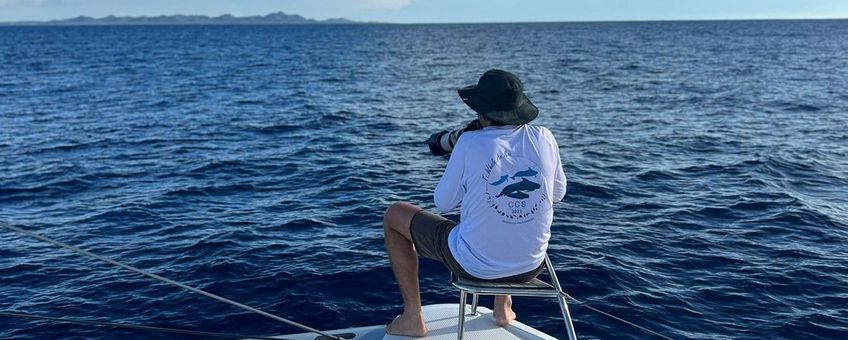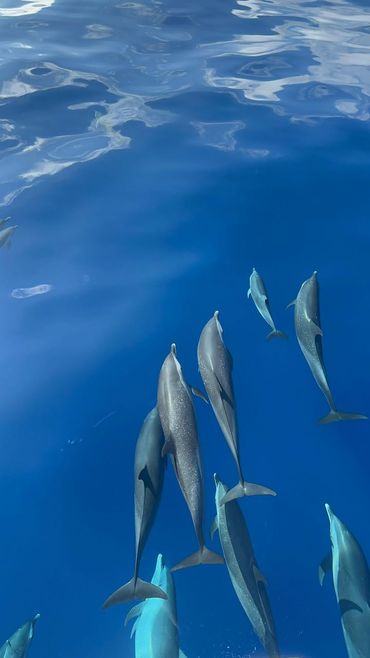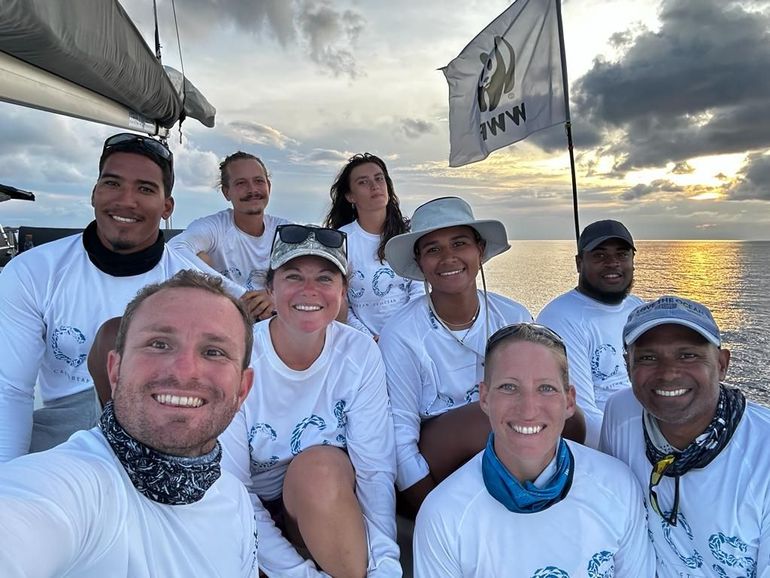
ABC expedition: promising insights about whales and dolphins
Caribbean Cetacean Society, World Wide Fund for Nature – NetherlandsThe waters of each island Aruba, Bonaire and Curaçao were investigated for one week. The weather conditions were not always ideal for observations. Despite this, the CCS crew and volunteers managed to observe Spinner, Pantropical spotted, bottle nose and Atlantic spotted dolphins, sperm whales, pilot whales and Pygmy sperm whales. The Pygmy sperm whales were spotted three times, which requires special attention as this species is the most sensitive to noise pollution. There were also many sightings of juvenile dolphins. This emphasizes the need for protecting these nursery areas which are vital for the protection of the species.
 “We are happy with the results, but it’s clear that more research is needed to know more about these marine mammals. It also shows the importance of expanding the Yarari Sanctuary to the waters of Curaçao and Aruba”, says CCS Director Jeffrey Bernus.
“We are happy with the results, but it’s clear that more research is needed to know more about these marine mammals. It also shows the importance of expanding the Yarari Sanctuary to the waters of Curaçao and Aruba”, says CCS Director Jeffrey Bernus.
A total of 25 people from the islands were trained by Jeffrey and Stacey Mac Donald, Program Advisor of WWF-NL Dutch Caribbean program. This contributes to the capacity building which is needed on the islands to ensure local continuity of the efforts to protect our whales and dolphins. The participants consisted of policy makers, conservationists, representatives of STINAPA Bonaire, fishermen, sailors, a marine biology student and others with some knowledge of and love for the ocean.
The participants learned how to recognize the sounds of the dolphins and whales which were recorded with an underwater microphone. They also learned how to determine which species they encountered and how to use professional cameras to take photos of the dorsal fins of dolphins and tails of whales – which are their fingerprints – from a safe distance of three hundred meters and by approaching them carefully without crossing their path. This informs us about the movement of the different dolphins and whales between the islands.
On Bonaire, the cetaceans are legally protected within the Yarari Sanctuary. STINAPA Bonaire and the Ministry of Health, Environment and Nature of Curaçao supported this scientific expedition. This research was conducted in agreement with the Aruba Marine Mammal Foundation and the Aruba National Park Foundation. Cetaceans are a protected species by Aruba law and are not allowed to be disturbed. The ABC-expedition was organized in honor of Paul Hoetjes, who has done extensive work on nature conservation in the Caribbean. He was one of the inspirations for founding CCS. Ti Whale An Nou is financed by WWF-NL and it is part of a three-year program.

Text: WWF
Photos: Caribbean Cetacean Society
